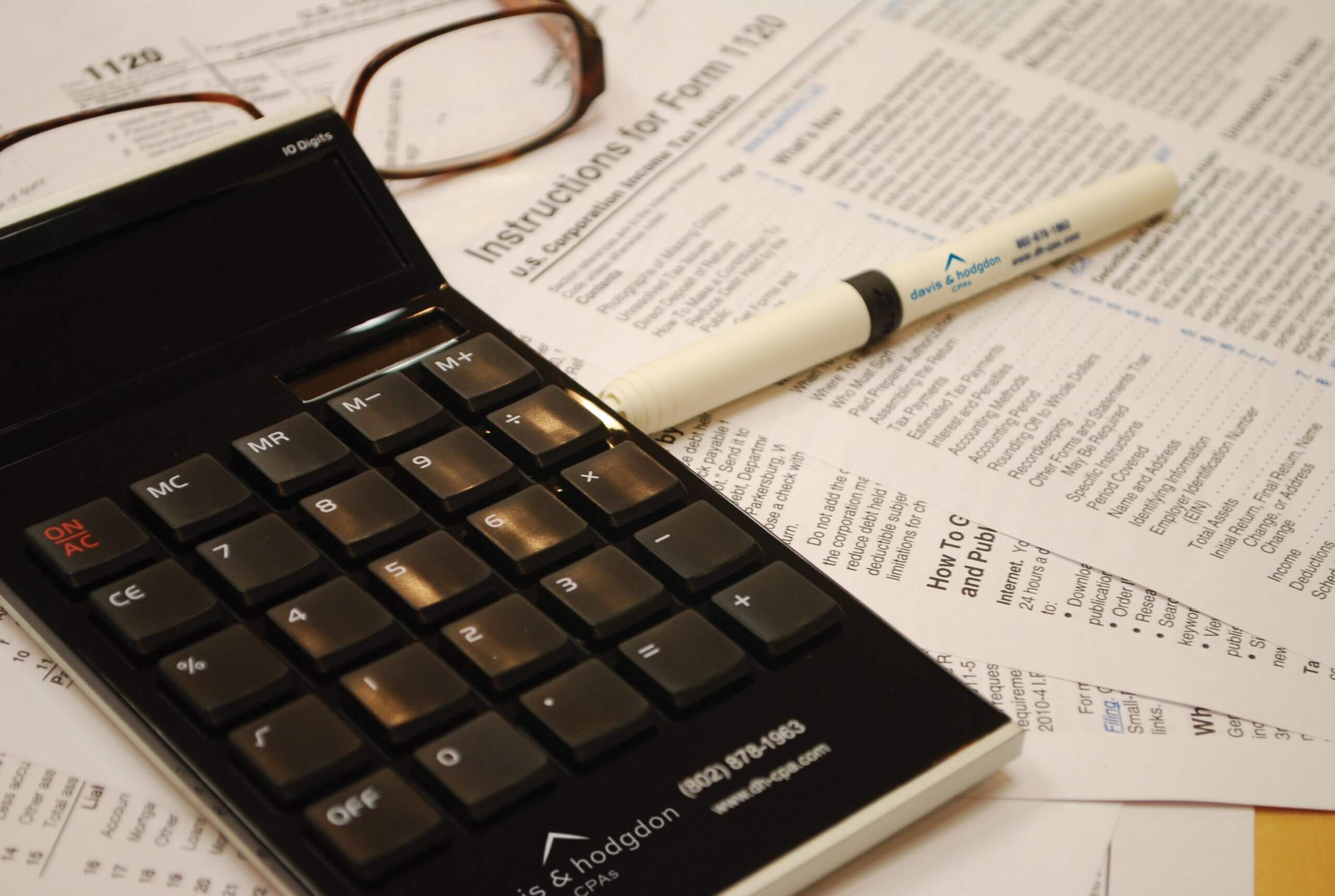Tax Tips for Homeowners
Updated: October 3, 2023
Tax laws give eligible homeowners a number of tax breaks, but many of those laws are complex and require documentation. Knowing the rules and planning to comply with them could help you save thousands of tax dollars.
Read our article Tax Tips for Homeowners below to review how these laws that may affect you.
Tax Treatment of Costs Incurred in Purchasing a Home
Immediately deductible items include prorated real estate taxes (within limits), loan origination fees (points), and prorated mortgage interest. Most everything else is added to your home’s basis and includes things like real estate commissions, attorney fees, and recording costs. Often one of the largest parts of the closing costs are amounts paid to establish escrows for property taxes and insurances. Escrow amounts are not immediately deductible and do not add to your home’s basis.
Since escrows are merely funds set aside in a separate account, they do not become deductions until your escrow agent submits those amounts for payment on property taxes. You can deduct only the real estate taxes that the lender actually paid from escrow to the taxing authority (property insurance is a personal expense and is not deductible when escrowed or paid).
“Points” (also may be called origination fees, maximum loan charges, loan discount, or discount points) are used to describe certain charges paid, or treated as paid, by a borrower to obtain a home mortgage. The points you pay on a mortgage are deductible the year you make the purchase or generally, must be deducted over the life (term) of the mortgage.
However, an exception to the general rule applies if you meet the following criteria:
- The loan is secured by your primary residence, or the loan was used to buy, improve or build the home.
- The points are computed as a percentage of the loan principal.
- The points are clearly delineated on the buyer’s settlement statement; and
- You put cash into your home purchase in an amount at least equal to the points you were charged.
Although you may deduct points paid on an original mortgage the year in which they are paid, you also have the option to deduct them ratably over the life of the loan. Keep this in mind if you don’t have enough deductions to fully utilize itemizing your points all in one year.
You may also deduct points that a seller paid for you at closing. When a seller pays points for the buyer (or in other words, buys the mortgage rate down) the buyer gets a lower mortgage rate and can claim the point’s deduction on their return. However, be advised these points reduce your basis.
When real property is sold, the buyer and seller must apportion the real estate taxes for the year of sale. The agreement between the buyer and seller concerning who pays the taxes does not necessarily determine who gets to deduct the taxes. This is because a taxpayer cannot deduct real property taxes imposed on another taxpayer, unless the buyer pays delinquent taxes imposed on the seller; then that amount is added to his/her basis of the property. Generally, regardless of the taxpayer’s overall method of accounting, the date of sale and the real property tax year determine each party’s share of the taxes.
Essentially, property taxes must be apportioned between the buyer and seller based on the number of days each held the property during the property tax year. For this reason, if you buy or sell your home during the tax year it will be necessary to trace your real estate tax payments made at closing to your settlement statement.
Under prior law, individuals could fully deduct state, local and foreign real property taxes. Tax law changes effective after December 31, 2017, have limited the total deduction to $10,000 for state and local property tax. This deduction no longer includes foreign property tax.
Deducting Mortgage Interest
The most substantial tax deduction for many homeowners is the mortgage interest deduction. Subject to tax law changes at the end of 2017, limitations have been put on the mortgage interest deduction. Mortgage interest on a primary residence (in addition to second residences) is tax-deductible (but not necessarily for Alternative Minimum Tax or AMT) for mortgage balances up to $750,000 ($375,000 if married filing separately). You are also entitled to deduct interest on additional home equity indebtedness only if the proceeds are used to invest in improving the home. The total amount of acquisition indebtedness and home equity indebtedness is subject to an overall limit of $750,000.
Existing mortgages and refinances of existing mortgages are grandfathered up to the 2017 limit of $1 million. If a mortgage was originally considered to be entirely acquisition indebtedness, then any refinance of that mortgage will continue to be considered acquisition indebtedness, but only to the extent of the original mortgage.
Late payment charges may also be deducted as home mortgage interest if not for a specific service received in connection with your home loan. The same is true for mortgage prepayment penalties. If you pay off your mortgage early and incur a prepayment penalty, you can deduct that penalty as home mortgage interest (subject to the same requirements for late payments).
Acquisition and home equity indebtedness must be secured by a qualified residence. If your adjusted gross income is higher than a certain level, your deductions may be limited.
Deducting Home Mortgage Interest and AMT
Home equity indebtedness is only deductible for Alternative Minimum Tax purposes if used to improve the home (to the extent the equity borrowed does not exceed the original cost of the home). For this reason, it may be necessary to track proceeds of home equity loans for AMT purposes. In addition, the definition of a “qualified personal residence” is different for AMT than it is for regular tax, which may eliminate the deduction of interest on acquisition indebtedness for AMT purposes.
Mortgage prepayment penalty
If you pay off your home mortgage early, you may have to pay a penalty. You can deduct that penalty as home mortgage interest, provided the penalty isn’t for a specific service performed or cost incurred in connection with your mortgage loan.
Refinancing
If you refinanced last year, you may be able to write-off any points you paid to buy down the mortgage rate. To do so, you must capitalize and amortize them over the life of the new loan, (unless part of the new loan is used for home improvements in which case the IRS allows a deduction for a portion of the points allocable to the home improvements). If the loan is paid off prior to maturity (e.g., the residence is sold and the loan paid off, or the loan is refinanced with a different lender), the remaining unamortized balance of the points can be deducted in that tax year. But if the mortgage is refinanced with the same lender, the unamortized “old” points and any new points must be deducted over the term of the new loan.
Deducting Real Estate Taxes
Real estate taxes are annual taxes based on the assessed value of a property and are also tax deductible. You may deduct all property tax payments made on your residence(s) as an itemized deduction as long as that payment is not associated with the expense of a business. However, due to the passing of the Tax Cuts and Jobs Act (TCJA), the deduction for property taxes, when combined with state and local income taxes, is capped at $10,000.
Sale of Your Home
If you make a profit when you sell your principal residence you can exclude up to $250,000 of gain ($500,000 for married couples) from your income if you meet certain requirements. The full tax break is only available once every two years. During the five-year period ending on the sale date, you must have owned the home and used it as your principal residence for at least two years.
Tax Tips for Homeowners
If you are married and file jointly, the full $500,000 exclusion is available if both you and your spouse meet the two-year use requirement and haven’t claimed the exclusion for another sale within the past two years. You don’t necessarily have to own the residence jointly. If you recently married and plan to sell your residence at a gain, don’t rule out the possibility of claiming an exclusion just because your spouse excluded a gain on another sale within the past two years. You can still qualify for an exclusion of up to $250,000 if you meet all the requirements yourself.
Additionally, even if you didn’t meet the requirements for the full gain deduction when you sold your prior residence because you didn’t meet the time requirement, you may be able to receive a prorated deduction.
A taxpayer who fails to meet the ownership and use requirements or the “one-sale-in-two-years” requirement is eligible for a partial gain exclusion if the principal residence was sold or exchanged by reason of:
1. a change in place of employment,
2. health; or
3. unforeseen circumstances.
Moving Expense Deductions
Prior to tax law changes starting in 2018, homeowners who had recently relocated for work had the ability to write off the cost of moving themselves, their household goods, their vehicles, and other reasonable costs associated with the move. For tax years starting 2018 the TCJA suspended the moving expense deduction. The only exception is for members of the Armed Forces on active duty that move due to a military order.
Moving and Multi-state Tax Issues
If you moved from one state to another, chances are that you will be required to file multi-state tax returns. This could bring up several complicated tax and reporting issues. An allocation of income must be made between the two states and proper documentation maintained. Please feel free to contact us to save yourself time and costs associated with incorrect reporting or double taxation.
Determining the “Basis” of your Home
In laymen’s terms, “basis” refers to money you have invested in your home for which you have not received a tax deduction. The biggest component of your home’s basis is the original purchase price. To calculate “basis” you generally start with the amount you paid for the home when you purchased it or the amount you paid to have it built; then you start adding.
The first addition is usually closing costs. As mentioned earlier not all “closing costs” are immediately tax deductible and need to be added to basis. Actually, the bulk of the costs paid at closing are generally not deductible but are added to your home’s basis.
The rest of the additions to your home’s basis are home improvements. Home improvements are the most common increase that occurs to a home’s basis. There are limits on what the IRS considers an improvement.
An improvement must accomplish one of the following three goals:
1. Materially add to the value of your home.
2. Considerably prolong its useful life; or
3. Adapt it to new uses.
Only the actual costs incurred for improvements can be added to your home’s basis. You can’t add a value for your own labor.
There are two other important details about improvements to remember when calculating your home’s basis. First, any improvement must remain with the home when it is sold. The same expense can’t be claimed twice. For example, if you replace a water heater more than once, you may only add the cost of the latest expenditure to basis. Second, you must distinguish between an improvement and a repair. A repair merely keeps your home in an ordinary and efficient operating condition. It doesn’t add to the value of your home, prolong its life, or adapt it to a new use.
Careful timing can transform a repair into a home improvement. Repairs completed as part of an extensive remodeling or restoration of your home are considered improvements, which means they can be added to your basis.
Also, the distinction between an improvement and a repair isn’t always clear. For example, painting either a room or your entire house for the first time is an improvement, meaning the cost can be added to basis. A later repainting of the room or entire house is a repair, and this cost doesn’t increase your basis. Your basis will be used to calculate any gain on your home upon a sale in the future and keeping accurate records of these items while you own the home is very important.
Second Homes and Vacation Homes
Owning a second residence has more benefits than you may think. You can deduct some of the costs associated with owning the home, such as real estate taxes, personal property taxes, mortgage interest, and points (must be amortized over the life of the loan).
Additionally, if you rent the home for less than 15 days in a twelve-month period, you are generally not required to report the income. That amounts to tax-free income!
If you rent the residence for greater than 14 days, your second home may be classified as a rental property and become subject to business tax rules. In order to qualify as a second residence, you must occupy the residence for the greater of 14 days or 10% of the number of days it is rented.
The tax treatment of vacation homes can be confusing. While vacation homes may seem attractive because of the interest deduction generally allowed for second residences, taxpayers should closely monitor personal and rental use of vacation homes to avoid the potentially unfavorable characterization of “rental property.” Interest expense allocable to the rental period of such properties is subject to the passive activity loss rules, while interest expense allocable to personal usage may be nondeductible personal interest (if the property fails to qualify as a residence).
Home Office Expense Deductions
If you have a qualified office in your home, you may be able to deduct costs associated with maintaining the portion of your home exclusively used for business. For example, 100% of your expenses related to the office such as painting and upkeep are deductible, as well as a portion of indirect expenses such as the cost of utilities, maintenance, garbage pickup, as well as a deduction for depreciation.
To qualify, you must use a portion of your home regularly and exclusively for business use. The in-home office is no longer deductible for employees, effective with 2018 tax law changes.
Taxpayers with outside work locations may want to shift substantial administrative and management activities to a designated area of their personal residence to qualify for the home office deduction. Otherwise, the IRS may determine that your “office” is at your customers’ offices.
Simplified Home Office Deduction Rules
There is a simplified method to take a deduction on your home office. Instead, you can deduct $5 for every square foot of home office space used, up to a maximum of 300 square feet, or $1,500. Also, when you sell your home in the future, you don’t have to recapture depreciation on your home for the years you took the simplified option.
Tax Credit for Going Green
Homeowners that make energy efficient updates could qualify for home energy tax credits. The credit amounts and types of qualifying expenses that homeowners could benefit from were expanded by the Inflation Reduction Act of 2022.
Here is what you need to know:
Taxpayers can claim the Energy Efficient Home Improvement Credit and the Residential Clean Energy Credit for the year the qualifying expenditures are made.
Homeowners who improve their primary residence will find the most opportunities to claim a credit for qualifying expenses. Renters may also be able to claim credits, as well as owners of second homes used as residences. Landlords cannot claim this credit.
The Energy Efficient Home Improvement Credit is 30% of the cost of alternative energy equipment that you installed on or in your home. This can also include your second home or vacation home, and there is no limit on the amount of credit available for most types of property. If your credit happens to be more than you owe, than you can simply carry forward the unused amount to next year’s return. This credit will decrease to 22% for property placed into service after December 31, 2023. Read more.
Improvement Deducted as Medical Expenses
You may find it surprising that you can deduct the cost of adding a swimming pool, elevator, or air conditioner to your home. That is, if the primary purpose of the expense is for the medical care of you, your spouse, or your dependent. You can also deduct the costs related to the transportation, operation and maintenance of the addition or improvement if the medical reason still exists and the costs are for treating the taxpayer, spouse, or a dependent.
Of course, the IRS wants you to be reasonable. Amounts that you spend for sheer luxury or just for aesthetic reasons are not deductible. Contact us for closer review before moving forward with these renovations.
Modified and amplified safe harbor method for participants in the Hardest Hit Fund and Emergency Homeowners’ Loan Programs
If you are a homeowner who received assistance under a State Housing Finance Agency Hardest Hit Fund program or an Emergency Homeowners’ Loan Program, you may be able to deduct all the payments you made on your mortgage during the year.
Homeowners Assistance Fund
The Homeowners Assistance Fund program (HAF) was established to provide financial assistance to eligible homeowners for purposes of paying certain expenses related to their principal residence to prevent mortgage delinquencies, defaults, foreclosures, loss of utilities or home energy services, and displacements of homeowners experiencing financial hardship after January 21, 2020. If you are a homeowner who received assistance under the HAF, the payments from the HAF program are not considered income to you. However, you cannot take a deduction or credit for expenditures paid from the HAF program.
Extended tax benefits
Certain tax benefits, including the following, that were set to expire have been extended.
- The exclusion from income of discharges of qualified principal residence indebtedness has been extended through 2026.
Davis & Hodgdon CPAs works with homeowners to capitalize on all applicable deductions. Our accountants have the experience required to make sure that nothing is missed! For more information or to set up an appointment please click here or email [email protected].
Tax Tips for Homeowners is published by Davis & Hodgdon CPAs as a service to our clients, business associates and friends. Recipients should not act on the information presented without seeking prior professional advice. Additional guidance may be obtained by contacting Davis & Hodgdon at 802-878-1963 (Williston) or 802-775-7132 (Rutland).



